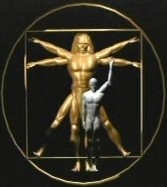0
 About "Puyeshgaraan"
About "Puyeshgaraan"
A few years after the Islamic Revolution of Iran, a group of Iranian writers and artists, organized by two Iranian writers, i.e., Shokooh Mirzadegi and Esmail Nooriala, began to have regular weekly meetings to see how they can salvage what they had attained for three decades and was then in danger of extinction due to the anti-modern cultural policies of the Islamic government. The result was many works of art and a new consciousness about the role of the intellectuals in post-revolutionary era. The emphasis was on those intellectuals that had immigrated and were scattered, then and mostly, in Western Europe. They could establish a non-profit organization called "The Society of Iranian Artists and Writers in Britain" (SIWAB) that was active until its organizers immigrated again to different parts of the world.
Ten years after the Revolution, in 1988, Shokooh Mirzadegi and Esmail Nooriala issued a open letter that discussed the cultural situation and proposed a set of ideas for other writers and artists to adopt and implement in their works. These ideas were labeled as "Puyeshgarai" (meaning "Perpetual Search" in Persian) and the adherent to those ideas were to be known as "Puyeshgaraan" (meaning "The Perpetual Searchers."). The core of these ideas were a modernist politico-cultural confrontation with the backward policies and philosophies of the Iranian government and to create an effective and humanist alternative so that the writers and artists inside Iran, who were under tremendous pressure and censorship could have a model and an outlet.
The letter was well received by many of Iranian writers and artists. In 1989 the first issue of a periodical was published in London by Mirzadegi and Nooriala. In 1990 the two writers entered into marriage bond and four years later left UK for USA and settled in Denver, Colorado.
It was in Denver of 1994 that Puyeshgaran was turned into a "Cultural Society" and began its extensive programs of publishing the periodical, having weekly gatherings, inviting Iranian artist and writers to Denver, and cooperating with others in celebrating the writers and artists who were profoundly in cultural war with a backward so-called "Islamic" ideology.
(See the rest of this article under this link: Radio-TV Programs.)